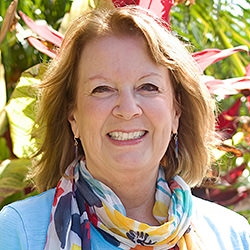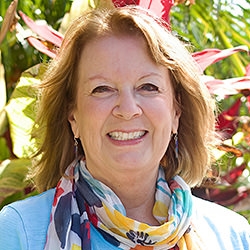

Search Results: norms
-
There are healers and therapists who see climate anxiety as a pathology. Instead, we can see it as an understandable reaction to the magnitude of the environmental problems that surround us. And we can see it as a subset of eco-anxiety: a feeling of worry, nervousness or unease triggered by an awareness of the ecological threats facing the earth due to climate catastrophe. Read on for tips on coping with the anxiety.
-
-
When we apply and practice NVC over a number of months in an organization, it can create group norms that make learning go deep faster. These new norms can impact people's interactions with others both inside and outside of work. From here, there's potential for people to start seeing value when they share these skills and experiences. This may create a ripple effect of interest in applying NVC across different domains in life.
-
Conflict is a normal and natural part of life. To varying degrees, it happens whenever two or more people consistently spend time together. Resolving conflict effectively and peacefully, in a way in which all parties feel respected and valued, does not feel natural for those of us who grew up with punitive, adversarial, or avoidant approaches to conflict. Eric offers some tips for approaching conflict.
-
The way we talk to one another, and think about or react to our lives, may seem "normal" but eventually, this may reach a point where we realize something isn't working, and we make adjustments. But often the suffering continues if we aren't addressing root causes. In studying NVC we can become more aware of what we are doing and its effects -- plus imagine and implement alternatives that lead to greater fulfillment for self and others.
-
It's normal for us to keep something inside, avoiding sharing it with someone else as the risk may feel too high. Maybe they will reject me, or be offended and not speak to me again? It can be difficult to know when to share your truth and when to keep it inside. In this episode we layout some useful strategies that will help you speak your truth, while still keeping the connection.
-
Tools for creating simple agreements with your group about what to do when conflict arises.
-
"All humans share the same needs" -- tragically, this idea can hide the reality that some people with less power in society have needs that go unmet to a greater extent, much longer, and with more dire consequences. Often, when the marginalized bring up experiences related to their membership in a certain group, their pain isn't acknowledged, and focus shifts to the listener's discomfort. The concept of universal human needs can be used to silence and minimize their pain. Read on for how to proceed.
-
Amidst racial violence, there are things that NVC can offer. And there are places where NVC culture needs to be more vigilant. Here are examples of where, amidst incredible loss and pain, "allies" and communities commonly (and often unknowingly) create false equivalences, minimization and re-injure those who've been historically marginalized -- even when they offer empathy, or aim to stay "safe". Read on to cultivate greater understanding and ways to respond differently.
-
The existing unequal risks and impacts people of certain race, class and identities face in society is magnified in these strenuous times -- especially with things such as illness, financial well being, discrimination, attacks, and death. As responsive NVC practitioners we can stand in solidarity with those who are differentially impacted. Read on for this, and additional ways to spot common pitfalls of doing so.
-
Historically, work, education, resources, land, animals, and relationships were intertwined, shattered by capitalism and industrialization. We transitioned from communal self-sufficiency to individualism, industry, and smaller families. To avert extinction and thrive, we need to reconstruct social systems, emphasizing the commons, uniting communities with the land and resources in interdependent, regenerative harmony.
-
While so many of us know how close we are to the edge of global catastrophe and want change, what makes the existing global system continue to function with our ongoing participation? Read on for more on the challenges and path towards learning to steward life and all the resources of this one planet for the benefit of all.
-
When we have privilege, we can have access to resources resulting from legal or social norms related to membership in a group -- independent of any (in)action, awareness of the disparity, the potential benefits to us, or the costs to others. Unhelpful ways of engaging with privilege are: denial/invisibility, guilt/shame, defensiveness, and entitlement. Helpful ways of engaging are: owning privilege, learning about privilege, opening to feedback, and stewarding privilege for benefit of all. To be helpful we need to engage with necessary (rather than unnecessary) discomfort.
-
Ask the Trainer: Share a list of request types, examples, and a strategy for formulating them.
-
Dear friend,
There is an article from some years back by Dan Rather called, Why America Needs More Empathy. It touched me deeply when I first read it, and I happened to stumble upon it again recently. It feels so relevant and alive for me right now because he reminded me of what my parents taught me about helping other people.
-
- Learn how every decision we make perpetuates the status quo or brings us closer to the vision of a world that works for all
- Find out about our big brain capacity to integrate needs, impacts, and resources to make decisions that work for everyone
- Understand why power differences interfere with collaborative decisions and what can be done about it
- Discover tools that support collaboration in larger groups and organizations— even across power differences!
-
When someone's in immense pain and uses words that are hard to hear, see if you can bring in as much attention and compassion as you would to someone who was cut with a sword. Focusing on what's important to them, and not so much on how it was said. This may support greater understanding and healing. Otherwise, we risk prioritizing needs, norms, and inequities of the dominant culture, over caring for people who bear the invisible brunt of such norms.
-
Why is it so difficult to change our patterns even when we want to, even when we experience shame or despair about them? Arnina Kashtan offers some of the common pitfalls and concrete steps to overcome them in the future.
-
Last year, I planted my vegetable garden in February. It was an enormous amount of work to get it ready. This year, we decided to move the garden farther away from trees (to avoid the ongoing tree root issue and allow more sun). So, we created 4 new beds. Now, they are ready to be planted, and yet… forward momentum has stalled.
-
October always makes me think about Marshall Rosenberg, the founder of Nonviolent Communication. He was born October 6, 1934. If he were still alive today (he died February 7, 2015), he would be 89 years old!

Quick Links
Subscription Preferences
Stay In Touch!
Looking for ways to keep up with NVC Academy news, get special offers, free resources, or words of inspiration? Here are five ways to stay engaged:


















